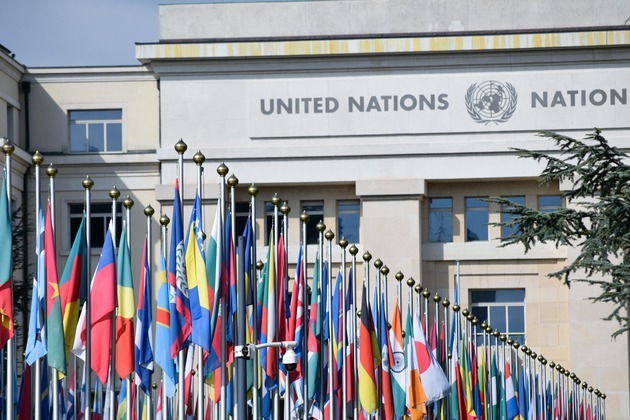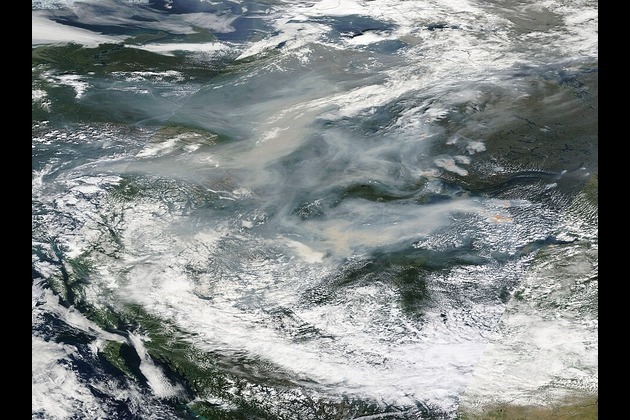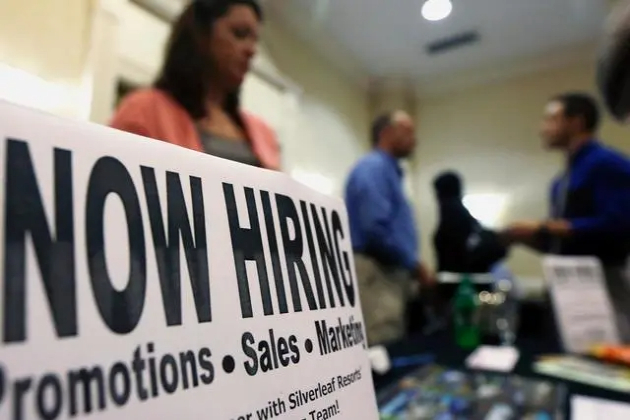Global Aerospace Provides Critical Information on the Importance of Aviation Sustainability and Emissions Compliance
Brand Story
23 Mar 2023, 00:45 GMT+10

This month, Global Aerospace's sustainability partner 4Air provides information about the increasing compliance requirements imposed upon aircraft operators. For more information on the partnership, please contact any member of the Global Aerospace underwriting team.
Five years ago, there were two emissions schemes that required compliance by aircraft operators. Now there are five, and more are on the way. Emissions compliance is getting increasingly complicated for international operators and is likely to continue to do so. Simply put, compliance schemes require aviation operators to annually monitor their international emissions and, upon passing certain thresholds, report those emissions to the appropriate authority and purchase compliance credits to compensate for their reportable emissions.
1. What are some examples of existing emission schemes?
Today, operators must comply with a growing number of environmental schemes around the world. The Carbon Offsetting and Reduction Scheme (CORSIA), European Union Emissions Trading System (EU ETS) and the United Kingdom's version (UK ETS) cover various international routes, but a growing number of domestic schemes are also emerging. Such schemes exist in France and Turkey, and legislation may be passed in California. Regardless of their home country, operators flying to, from or within countries such as the U.K., Switzerland or any nation in the EU have to monitor their emissions and will potentially have reporting and compliance obligations.
2. What monitoring obligations exist for operators under these programs?
Any operator conducting international operations needs to monitor its emissions for potential reporting obligations. All of the programs have exemption thresholds. For example, aircraft weighing less than 5,700kg MTOW are exempt and different thresholds may apply for commercial versus non-commercial operators. However, it is recommended to monitor international emissions against all programs, particularly as the geographic scope, emissions factors and other rules are changing each year.
3. What reporting obligations exist under these programs?
CORSIA has a higher threshold than most schemes, but the ETS programs have thresholds for non-commercial operators that are low enough to be triggered by a typical flight department with high international flight volume to specific countries. A good rule of thumb is that if over 100,000 gallons of fuel are used annually on international missions, some compliance obligations are likely to be triggered.
4. Are there changes coming to the programs?
Yes. Every year, it seems there are changes to the various emission schemes. The scope of the schemes in the U.K. and Switzerland grew to include more flights starting January 1st 2023, and the reduced scope of the EU ETS is set to expire at the end of 2023, increasing the scope of that scheme as well. It is important to stay on top of annual changes to properly report emissions and avoid compliance penalties. Being exempt in one year does not guarantee exemption the following year.
5. Beyond reporting, what are the compliance obligations under these programs?
It can be confusing that the various emission schemes use different compliance mechanisms. CORSIA and the French ETS scheme use carbon offsets from the voluntary carbon market that meet specific requirements. Operators must purchase and retire these offsets against their carbon emissions. However, the EU, U.K. and Swiss ETS programs take more of a traditional cap and trade approach, issuing allowances specific to their program each year. Operators must buy the specific program allowances they need and surrender them to the state against their carbon emissions.
6. What is the difference between a carbon offset and a carbon allowance?
Carbon offsets are not the same thing as carbon allowances. An offset represents the verified reduction of one metric ton of CO2. This allows operators to count carbon offsets that they may also be purchasing towards voluntary goals against their regulatory obligations, as long as they meet the requirements of that scheme. On the other hand, allowances represent a permission to emit, not an actual carbon reduction. Allowances are issued each year by the administering country and must be surrendered within their specific registry and specifically applied towards that country's program. Over time, the country issues fewer allowances each year, driving prices up, but at the same time providing bigger incentives for decarbonization and advancing that country's climate goals.
7. What are the penalties for non-compliance?
Operators who fail to comply and surrender allowances (allowance being the compliance mechanism or unit, as opposed to a carbon credit) on time can be subject to fees of €100 per allowance under the ETS programs like EU ETS, potentially more than doubling compliance costs. Penalties vary by scheme and, in the case of CORSIA, may be different depending on your home or reporting country. Regardless of the reporting scheme, it is vital to timely report emissions and to fulfill any compliance obligations using offsets or allowances.
8. How will SAF help reduce operator obligations?
Sustainable Aviation Fuel (SAF) provides a strong opportunity for operators to reduce their compliance obligations. Reporting year 2022 was the first where guidance was shared to help operators who were uplifting SAF to claim the emission reductions from the fuel against their compliance obligations. There are additional documentation, reporting, monitoring and verification requirements, but with the right emissions monitoring plan, use of SAF will offer increasing benefits when managing compliance obligations.
9. Isn't CORSIA voluntary?
There is often confusion about whether compliance with CORSIA is voluntary during the current "voluntary phase." Any optiona of compliance is at the country level, not the operator level. In this case, the term "voluntary" applies to the countries volunteering to participate, but any flights between participating countries are subject to CORSIA obligations, regardless of where the operator is located. So, compliance with CORSIA is mandatory for any operator flying between countries that have volunteered to participate. After 2027, this will include all International Civil Aviation Organization (ICAO) member states-except a few with very low international flight volumes.
Awareness and Action Are Essential
Taking note of international emissions is growing increasingly important as new emissions schemes emerge and the thresholds and scopes change for existing programs. Not only does awareness help organizations avoid costly compliance penalties, but it may allow more effective program designs that align and synergize regulatory compliance with voluntary goals.
To learn more about monitoring international emissions and designing an aligned regulatory and voluntary program, contact 4AIR.
About Global Aerospace Global Aerospace is a leading provider of aircraft insurance and risk management solutions for the aviation and aerospace industries. Our over 95 years of aviation insurance experience enable us to develop customized insurance programs structured around the needs of our clients. Recognized for our industry leading customer service, we serve as a trusted partner to a diverse range of aviation businesses and their insurance producers. https://www.global-aero.com/
Global Aerospace Media Contact Suzanne Keneally Vice President, Group Head of Communications +1 973-490-8588
 Share
Share
 Tweet
Tweet
 Share
Share
 Flip
Flip
 Email
Email
Watch latest videos
Subscribe and Follow
Get a daily dose of Nashville Herald news through our daily email, its complimentary and keeps you fully up to date with world and business news as well.
News RELEASES
Publish news of your business, community or sports group, personnel appointments, major event and more by submitting a news release to Nashville Herald.
More InformationInternational
SectionSecurity forces clash with insurgents in North Waziristan
ISLAMABAD, Pakistan: Pakistan's army said on June 4 that its security forces raided a militant hideout and killed 14 insurgents during...
Latvia, Liberia, Colombia win seats on UN Security Council
NEW YORK CITY, New York: The United Nations General Assembly has elected five countries to join the Security Council starting January...
Lee Jae-myung becomes president after South Korea’s political crisis
SEOUL, South Korea: South Korea's new president, liberal Lee Jae-myung, took office on June 4 after a dramatic and chaotic few months....
Britain outlaws single-use vapes over health and litter fears
LONDON, UK: As of this month, it's officially illegal to buy disposable vapes anywhere in the United Kingdom. The new ban, aimed...
Policy debates in South Korean election drowned by personal attacks
SEOUL, South Korea: South Korea's upcoming presidential election has turned into a messy battle full of personal insults and scandals...
Over 25,000 flee as smoke from fires worsens air quality in Canada, US
FLIN FLON, Manitoba: More than 25,000 people in three Canadian provinces have been forced to leave their homes because of wildfires,...
Business
SectionMeta joins tech shift to nuclear power for AI and data centers
MENLO PARK, California: As artificial intelligence demands explode, Big Tech is turning to an old source for new power: nuclear energy....
Strong economic data drives U.S. stocks higher
NEW YORK, New York - U.S. stocks rose appreciably Friday following the release of a strong jobs report which sent the U.S. dollar higher,...
US Job openings rise, but layoffs and tariff fears cloud outlook
WASHINGTON, D.C. America's job market is starting to lose momentum. In April, job openings rose — but so did layoffs, marking their...
Ireland sees 11% drop in social media sector jobs
DUBLIN, Ireland: Digital Business Ireland (DBI) has asked the Government to do more to help Ireland's digital and tech sector. This...
Akio Toyoda’s real estate firm to buy Toyota industries
TOKYO, Japan: Toyota has announced that it will take one of its key group suppliers, Toyota Industries, private in a deal worth UD$26...
U.S. stock markets slip after Tesla dives more than 14 percent
NEW YORK, New York - U.S. stocks fell Thursday after the feud between U.S. President Donald Trump and his biggest backer Elon Musk...














